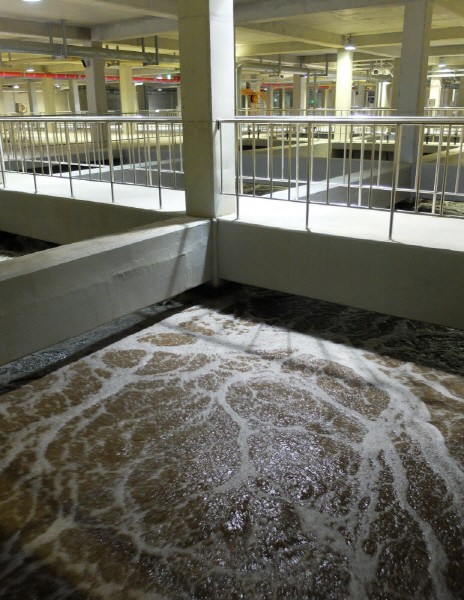
The Seoul City will transform the city's four water recovery centers into artificial intelligence (AI)-based 'intelligent water recovery centers.’ An automated sewage treatment system will be introduced by 2030.
It is a system that collects and accumulates major data affecting sewage treatment into big data, such as biochemical oxygen demand (BOD) and phosphorus concentration. Then, AI analyzes and predicts the big data in real-time to automatically execute optimal water quality management.
Currently, a person analyzes each measurement and manages it manually. When the automated system is introduced, monitoring will be possible remotely with a tablet or smartphone without any location restriction.
The city will build smart infrastructure in three phases starting this year to transform it into intelligent water recovery centers.
Core infrastructures, 'integrated DB infrastructure,’ 'central monitoring system,’ and 'remote monitoring system,’ will be built by August next year as the first phase. The integrated DB infrastructure is a server that collects and stores data required for monitoring and managing entire sewage treatment process in real-time. The central monitoring system collects the measured data from the four water recovery centers in one place and performs integrated monitoring.
It was difficult to compare the data for each center in the past, because the control system was operated separately in each center. The remote monitoring system supports to assess and manage the sewage treatment process with a tablet or smartphone without any location restriction.
The city plans to upgrade the system in the second phase, and complete the intelligent water recycling centers by creating a utility program in the third phase.
The city expects that the operation efficiency of the sewage treatment process will be maximized when the system becomes fully automated and the monitoring system is expanded. Transparency of the system will be enhanced that water quality will be managed more systematically and stably. Even when there is an emergency situation where a manager is absent due to an infectious disease such as the recent COVID-19 case, sewage treatment can be carried on without a halt. It can also reduce unnecessary mechanical functions to save energy and minimize greenhouse gas emissions.
Yoo-seok Han, director of the Seoul Metropolitan Government’s Water Circulation Safety Bureau, said, “We want to take a leap forward with ‘intelligent water recovery centers’ by introducing an AI-based automation system to the four water recovery centers in Seoul. We will implement an optimal water quality management by maximizing the efficiency of sewage treatment operations.” He continued, “We will do our best to ensure that the foundations for the intelligent water recovery center, which are big data infrastructure, central monitoring system, and remote monitoring system, can be built without any setbacks.”
By Staff Reporter Si-so Kim (siso@etnews.com)